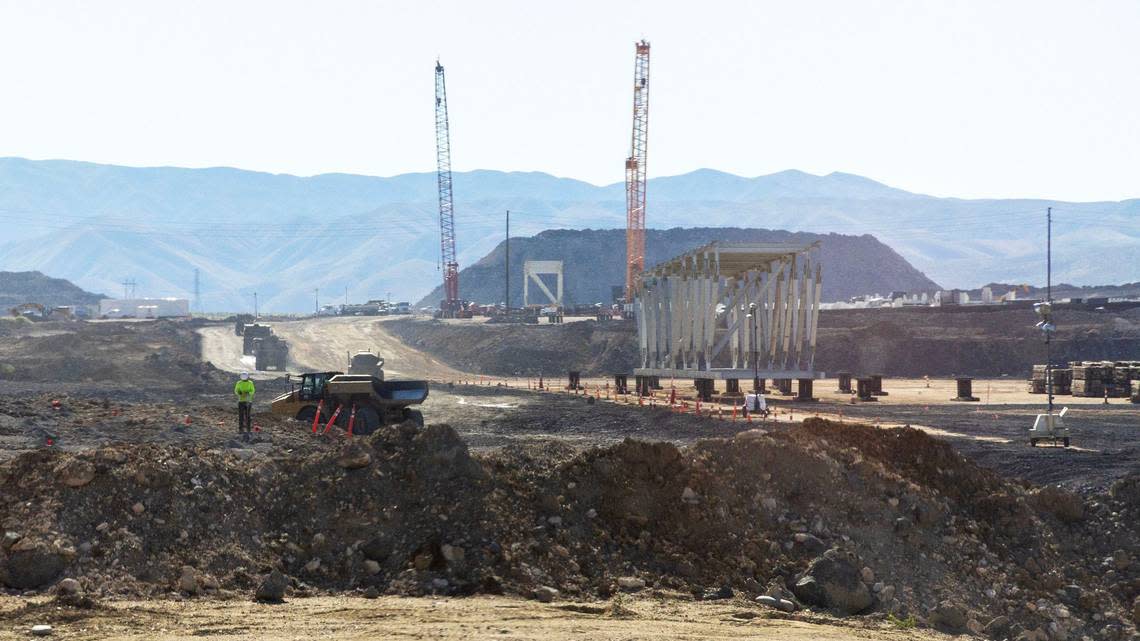Think Boise’s growth problems are bad now? We ain’t seen nothin’ yet | Opinion

As the Idaho Statesman’s Nick Rosenberger detailed in a story this week, Micron’s massive expansion in Boise could add up to 15,000 related jobs. That’s on top of the ongoing influx of new residents flooding into the Treasure Valley.
Ada and Canyon counties have added nearly 100,000 people in the past four years, since the 2020 Census, according to the most recent estimates from the Community Planning Association of Southwest Idaho, or Compass.
But the Treasure Valley’s estimated population hasn’t even hit a million people; it still sits at about 822,000.
In other words, we ain’t seen nothin’ yet.
As Rosenberger’s reporting highlights, one of the big questions is how we respond to transportation demands.
And right now, the Treasure Valley is inadequate and woefully unprepared for future demand, with few options other than to get in your car and drive.
The greater Boise area lacks a robust public transportation system. Valley Regional Transit does the best it can, but its funding is limited, and its officials have to go begging to cities and counties every year to make budget.
Too many public officials complain that “nobody takes public transportation,” failing to recognize that a lack of funding makes public transportation less convenient than getting in your car and driving — usually alone — to work.
It may be a barely tenable situation today, but add another 300,000 people to the Treasure Valley, as Compass projects by 2050, and it will become painfully untenable.
Compass estimates that the region will need approximately $11.1 billion in transportation funding over the next 25 years, with an estimated $193 million shortfall every year between now and 2050.
Where is that money going to come from?
We have a solution. It’s called a local option tax, which is an addition to the sales tax in a local area, whether it’s citywide or countywide. It could be something as small as a half-cent, such as the sales tax addition in Salt Lake City that generates about $35 million per year.
The money generated from a local option tax could be used for a designated purpose, such as public transportation. And before any additional tax is imposed, voters in that jurisdiction would have to approve it for their city or county.
A local sales tax gets expenses off the backs of property taxpayers and is arguably more fair, because it’s a consumption tax. Sales taxes are spread out among all consumers, including out-of-state visitors.
There’s just one problem: The state Legislature would need to pass legislation to allow local option taxes, and Idaho’s Republican-dominated Legislature has opposed the idea — probably because it contains the word “tax.”
Legislators use the weak excuse that it creates disparate tax rates depending on where you buy things, and it might incentivize someone to cross city or county lines to buy something.
So what?
Cities and counties all over the country have varying degrees of sales tax.
Voters are smart enough to hear those arguments and decide for themselves. But state legislators won’t even allow voters to have the chance to make that decision.
Idaho law allows only “resort” cities with 10,000 or fewer residents to have a local sales tax in addition to the state sales tax.
In all, 22 cities in Idaho already have these local option taxes, including Donnelly and McCall, Ketchum, Kellogg, Sandpoint and Victor. Current state law requires a 60% approval from voters in that jurisdiction.
So there’s already precedent in Idaho for successfully implementing local option taxes, and plenty of precedent in other states, too. The sky isn’t falling in those other places, and those cities are able to pay for things like roads, parks and public transportation.
The issue of local option taxes comes up chronically, and Republican legislators reflexively shoot down the idea every time.
It’s time to recognize the benefits of local option taxes and allow voters to decide for themselves. A lot of people would trade a minuscule sales tax hike to respond to impending growth.
As the Treasure Valley creeps even closer to 1 million residents, we’ll wish we had done it sooner.
Statesman editorials are the unsigned opinion of the Idaho Statesman’s editorial board. Board members are opinion editor Scott McIntosh, opinion writer Bryan Clark, editor Chadd Cripe, newsroom editors Dana Oland and Jim Keyser and community members Greg Lanting, Terri Schorzman and Garry Wenske.


